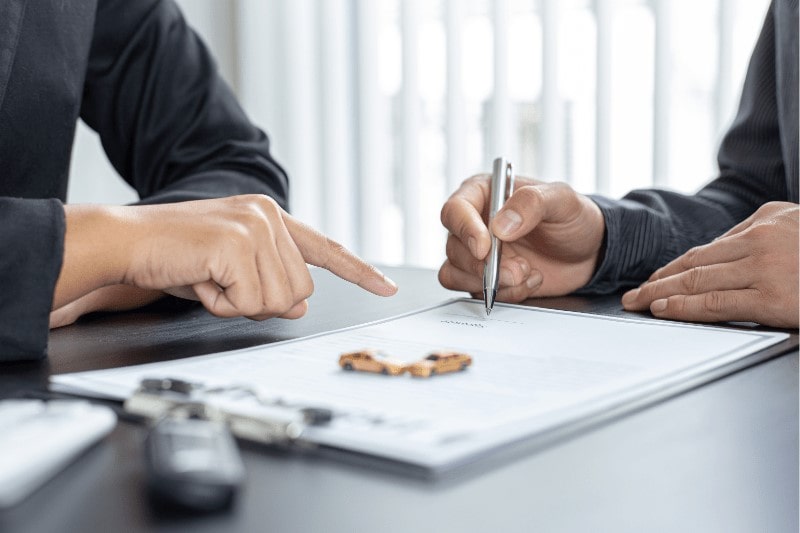Getting into an accident is often a traumatic experience. But amidst the shock, panic and confusion, it pays to try your best to stay calm.
Keeping a cool head will give you the best possible chances of getting the assistance you need in a timely manner—from emergency medical services, the police and your insurer, for instance. And this, in turn, will help you bounce back from the accident.
The key to being prepared is to make a mental checklist of things to do in advance. That way, you will not need to rack your brains to figure out what to do when an accident happens when you’re in a state of distress.
Here’s a practical guide on what to do if you are involved in an accident.
What to Do When an Accident Happens Step #1: Stay Calm
Knowing what to do after an accident is easier said than done, especially when you’re feeling stressed and confused. But taking a moment to calm down can help you think clearly and make the best decision for your situation.
Master some deep breathing techniques that can immediately calm you down in stressful situations. Mindfulness techniques such as the body scan or grounding can also stop your mind from running wild and bring you back to the present moment.
Once you have calmed down sufficiently, it is time to think of what to do. Whether it’s a minor fender bender or a major collision, it can be a good idea to keep a list of steps to take in an emergency in order to reduce your mental load. Your list should include what to do, as well as the contact details of the people and organisations to get in touch with.
What to Do When an Accident Happens Step #2: Contact Emergency Services
In an emergency, you need to get help as soon as possible. Always keep on speed dial a list of emergency services to contact. These should include the emergency ambulance and fire services, as well as the police hotline.
If you have any particular health needs, you might want to keep your healthcare provider on speed dial as well. Also, make a mental note to contact your family or partner if they would be able to help.
What to Do When an Accident Happens Step #3: Contact Your Insurer
Calling insurance after an accident is one of the most important steps you can take. In fact, notifying your insurance company of the accident should be a top priority right after ensuring everyone’s safety and contacting emergency services if needed.
Why is reporting an accident to insurance so important?
- Avoid Claim Delays: Meet your policy’s reporting deadlines to prevent potential issues with your claim.
- Get Expert Guidance: Your insurer can guide you through the claims process and answer your questions.
- Protect Your Interests: Reporting promptly helps protect your rights and keeps your insurer informed from the start.
What to Do When an Accident Happens Step #4: Seek Follow-up Care
After contacting emergency services and your insurer, prioritise your well-being. Seeking appropriate care is essential after an accident, even if you don’t feel injured immediately. Adrenaline can mask pain, and some injuries may not be apparent right away.
- Medical Evaluation: Get a thorough medical evaluation, even for seemingly minor accidents. This helps identify any hidden injuries and ensures you receive the right treatment.
- Follow-Up Care: Depending on your condition, you may need follow-up care such as physiotherapy, chiropractic adjustments, or other treatments. Don’t hesitate to seek these services to aid in your recovery, and check if they are covered by your insurance policy.
- Document Everything: Keep records of all medical treatments, expenses, and any time off work related to the accident. This documentation will be important for insurance claims and potential legal matters.
What to Do When an Accident Happens Step #5: Gather Supporting Documents
How do you claim your insurance after an accident? In accordance with your insurer’s advice, gather all the documents you will need to submit with your insurance claim. These may include:
- Medical reports
- Police reports (if applicable)
- Medical bills and receipts
- Inpatient discharge summaries
- Other relevant documentation
Reporting an accident to insurance promptly is essential, but so is providing thorough documentation. This helps validate your claim and ensures a smoother process.
What to Do When an Accident Happens Step #6: File Your Insurance Claim
In the aftermath of the accident, filing a successful insurance claim can offer you the support you need to move forward in life. Never estimate how much insurance can help when you are in trouble.
Suppose, for instance, that you have purchased HL Assurance’s Choice Protect360, a flexible, customisable 4-in-1 insurance plan that includes personal accident coverage as well as optional add-ons offering home contents, hospital income and annual travel insurance.
If you get into an accident and have to be hospitalised, you could be eligible to make a personal accident claim of up to $500,000 for accidental death and permanent disablement, and up to $10,000 in accident medical reimbursement.
If you purchased the hospital income insurance add-on, you could also receive up to $100 per day of hospitalisation cash, or $300 per day if you are warded in the Intensive Care Unit (ICU). After being discharged, you could receive up to $50 per day worth of recuperation benefits.
If the accident happens while you are overseas and you have purchased the annual travel insurance add-on, you could also make a claim for up to $100,000 worth of overseas medical expenses and $10,000 worth of medical expenses in Singapore.
As you can see, it really pays to have a solid insurance plan with great personal accident coverage and the ability to make claims in multiple areas.
HL Assurance’s Choice Protect360 offers up to four types of insurance protection in a single plan. The base plan comes with personal accident coverage, with the option to customise your plan according to your needs by adding home contents, hospital income and/or annual travel insurance coverage.
For a limited time only, receive a $30 Shopee voucher when you sign up for Choice Protect360.




